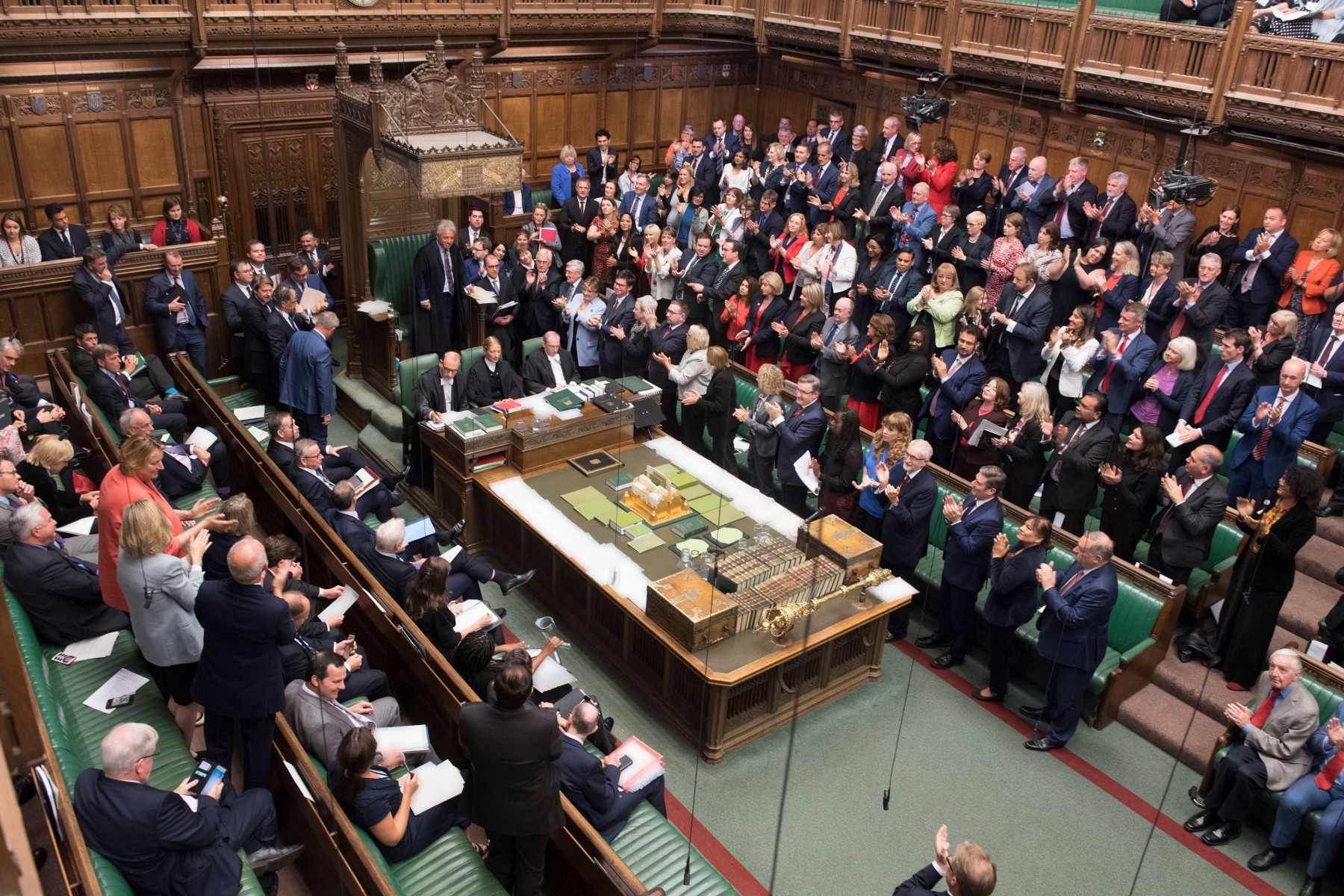THE publication of all Government communications and documents relating to Operation Yellowhammer now has to be made public after MPs backed a motion on September 9.
But what is it? Here’s what we know.
Operation Yellowhammer is the Government’s contingency plan in the event of a No Deal Brexit
What is Operation Yellowhammer?
Operation Yellowhammer is the Government’s contingency plan in the event of a No Deal Brexit.
It was created in June 2018 as a way for the Government to take control and quickly co-ordinate with different agencies to handle any short-term disruption.
It covered 12 areas including energy, food, water, transport and healthcare.
The operation was based on the worst-case scenario assumptions if the UK crashes out of the European Union without a deal.

Have Operation Yellowhammer plans been triggered?
Ministers triggered the Government’s no deal plans on October 21 ahead of leaving the EU on October 31.
Michael Gove confirmed the news yesterday, and said that the Brexit-wrecking plot from Sir Oliver Letwin had increased the chances of us not having a deal.
On Saturday night the PM was forced to write a letter to EU bosses asking for an extension to Brexit, as he still hadn’t got his deal signed off by the Commons.
The No Deal minister told Sky News’ Sophy Ridge on Sunday he was chairing a committee to fire the starting gun on the No Deal plans.
“It means that we are triggering Operation Yellowhammer,” he said.
“It means that we are preparing to ensure that if no extension is granted and we cannot guarantee that an extension will be granted that we have done everything possible in order to prepare to leave without a deal.”
What was the Commons vote on Operation Yellowhammer?
On September 9, MPs backed a motion calling to publish communications connected to prorogation and No Deal Brexit, and the controversial Operation Yellowhammer documents.
Ex-attorney general Dominic Grieve‘s demand for written and electronic contact about the temporary suspension of Parliament to be released was approved by 311 votes to 302.
Ministers will now have to publish all Operation Yellowhammer No Deal preparation documents – including WhatsApp messages and email – seen by the Cabinet or a Cabinet committee since July 23 by 11pm on Wednesday, September 10.
It would have taken a Parliamentary miracle for Boris Johnson to win the vote on September 9 with neither Jeremy Corbyn or Lib Dem leader Jo Swinson willing to back an election until a three-month Brexit delay has been secured.
Mr Johnson won 293 votes – 141 MPs short of the 434 he needed to call an election.
He has now lost six out of six votes, an all-time record for a Prime Minister.
With Parliament prorogueduntil October 15, it means there now cannot be an election until November – after the PM’s “do or die”Brexit date of October 31.
When did the dossier leak?
An Operation Yellowhammer dossier was leaked to The Sunday Times on August 18, claiming the UK could face months of disruption
The dossier revealed:
- The Government expects the return of a hard border in Ireland.
- Medical supplies could be “vulnerable to severe extended delays”.
- Availability of fresh food could go down, meaning prices will rise, hitting the most vulnerable.
- Up to 85 per cent of lorries using the main Channel crossings “may not be ready” for French customs, and could face delays of up to 2.5 days.
- Months of border delays could “affect fuel distribution”, impacting supply in London and the South East.
- Passenger delays at EU airports, as well as St Pancras, Eurotunnel and Dover.
- Rising social care costs.
How will I be affected by Brexit?
The Government has launched a Get Ready for Brexit campaign to keep the public informed.
The official “Get Ready For Brexit” portal has a questionnaire for individuals or businesses to find out how they could be affected.
The checklist allows users to say whether they propose to travel to the EU, export to Europe or if they are a British national living in the EU.
Some of the advice on the site includes warning that those wishing to travel with pets may not be able to take their animals abroad until 2020.
These people are being advised to contact their vet “at least four months” before travelling to have all the necessary paperwork.
People are also encouraged to “check for disruption” before travelling to the EU after October, as “border checks may take longer”.
The site also advises people to renew their passports “as soon as possible”.
Those using mobile phones in the EU are warned they “may be charged for using your mobile device in the EU if your operator has re-introduced roaming charges“.
Businesses can also find out on the site what paperwork they may have to fill in to import or export goods to the EU after Brexit.








